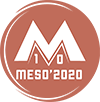The Cueva de la Cocina, an emblematic site for understanding the last Mesolithic sequence in the Mediterranean basin, has yielded a unique collection of portable art in Iberian Mesolithic.
The archaeological excavations carried out by L. Pericot in the 1940s, later by F.J. Fortea in the 1970s, and in recent years by O. García-Puchol, S. McClure and J. Juan-Cabanilles have made it possible to record a collection of thirty decorated limestone plaquettes. The decoration is made up of fine engraved strokes that give rise to complex geometric-type compositions, similar to those documented in southern France. Although this collection of plaquettes was partially published by Fortea (1973), Barandiarán (1987) and Pascual Benito (2006), it has never been thoroughly studied at a technical and compositional level, and many questions have been raised regarding the decorative patterns and the possible meaning of these representations.
In this communication we will advance the first results obtained in the macro- and microscopic study of these engravings, focusing especially on aspects linked to the sequence of technical gestures that give rise to a redundant compositional pattern. Throughout the technical study of the strokes, their temporal sequence and their organization in the graphic space, we will try to go beyond the technical order to the eventual meaning of these engraved plaquettes. This in-depth study will allow us at the same time to integrate these plaquettes into the framework of the European Mesolithic portable art.
References
Barandiarán, I. 1987. Algunos temas no figurativos del arte mueble prehistórico (A propósito de las placas grabadas de La Cocina). Homenaje a D. Domingo Fletcher. Archivo de Prehistoria Levantina XVII: 59-80.
Fortea, F.J. 1973. Los complejos microlaminares y geométricos del Epipaleolítico medite- rráneo español.Memorias del Seminario de Prehistoria y Arqueología, nº 4, Salamanca.
García Puchol, O., Juan Cabanilles, J., McClure, S.B., Diez, A., Pardo Gordó, S. 2015. Avance de re-sultados de los nuevos trabajos arqueológicos en Cueva de la Cocina (Dos Aguas, Valencia): campaña 2015. Sagvntvm-PLAV 47 : 251-255.
Pascual Benito, J.Ll. 2006. La cueva de la Cocina i l'art epipaleolític.. In : H. Bonet Rosado, M.J de Pedro Michó, C. Ferrer García, A. Sánchez Molina (eds). Arqueologia en blanc i negre : la labor del SIP 1927-1950. Diputació de València, València : 183-188
Pericot, L. 1945. La Cueva de la Cocina (Dos Aguas). Archivo de Prehistoria Levantina, II : 39-73.

 PDF version
PDF version
